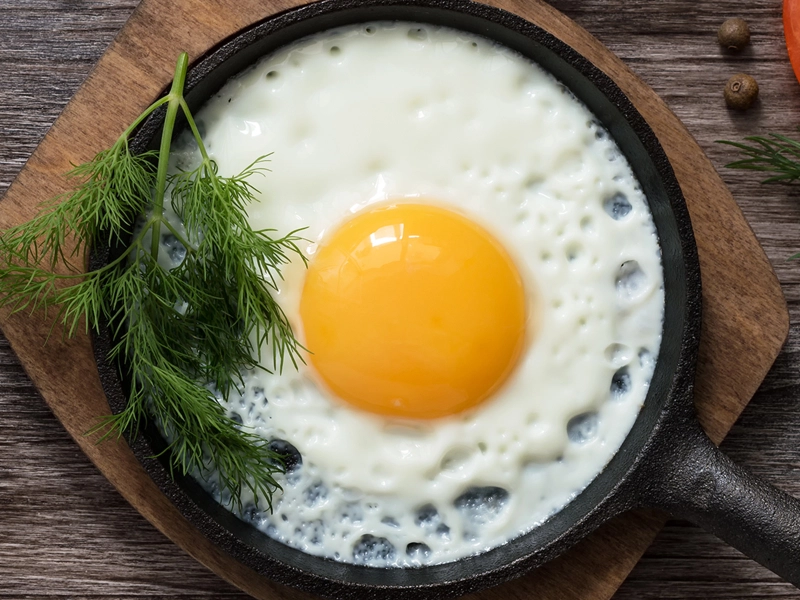Eggs are an easy and affordable source of protein, vitamins and nutrients. Additionally, they help you feel full between meals - which is especially helpful when dieting.
Protein

Advertisement
Protein is an essential nutrient for our bodies, and eggs provide plenty of it. Egg whites contain 3.6 grams of protein per 17-calorie serving, making them a perfect choice for those looking to stay lean and build muscle mass.
High-quality protein helps you feel full for longer and stay energized, which may help avoid overeating later on in the day. Furthermore, it enhances your body's capacity to burn fat.
Eggs are an excellent source of vitamins A and D, as well as B-complex vitamins and choline. These essential nutrients promote mental clarity, memory retention and learning.
Cholesterol

An egg contains two distinct types of cholesterol: low density lipoprotein (LDL) and high density lipoprotein (HDL). LDL, often referred to as "bad" cholesterol due to its increased risk for heart disease, is often considered the worse type.
However, research suggests that eating one egg a day is unlikely to lead to higher cholesterol levels. In fact, studies suggest it could even have some beneficial effects.
Research at Harvard Medical School and other institutions has established that eating one egg a day is generally safe for most people, with large studies following hundreds of thousands of individuals over decades. These investigations reveal no increased risks in terms of heart attacks or strokes from eating eggs daily.
Vitamins

Eating an egg daily provides your body with essential vitamins and minerals. These include vitamin D, which supports bone and teeth development; vitamin A for healthy skin growth; and choline for brain development in babies and expectant mothers.
Eggs not only contain vitamins, but they also contain essential minerals and trace elements like iron, calcium, potassium, magnesium, phosphorus, and zinc. When combined these nutrients help build bone mass, promote immune function, and reinforce body structures.
Minerals

Eggs are packed with essential vitamins and minerals your body requires for proper functioning. These include vitamin D (essential for calcium absorption), phosphorus, and vitamin A.
Eggs are also excellent sources of iron. Having enough of this essential mineral can help protect against chronic illnesses like heart disease, thyroid imbalances and memory loss.
Egg white's protein structure is built upon ovalbumin (the major amino-acid component). Ovomucin and antibacterial lysozyme form the key components of this part, which is particularly rich in provitamins and antimicrobials like ovotransferrin, avidin, and cystatin.
Egg white is an inhospitable environment for bacteria due to its high viscosity, alkalinity and abundance of antimicrobials. Furthermore, ovomucoid is highly resistant to chemical and thermal denaturation processes.
Fat

Eggs may be high in fat, but not all of it is bad. The monounsaturated and polyunsaturated fats found in eggs (MUFAs and PUFAs) help reduce the risk of heart disease.
They contain essential vitamins and minerals like lutein, zeaxanthin and folate that support healthy eyes as well as help prevent macular degeneration - vision loss that may occur with age.
Eating an egg each day can help you feel fuller for longer between meals. Plus, eggs contain high-protein that's more filling than carbs or fat and may assist in maintaining a healthy weight.
Eating healthily and exercising regularly can help lower your cholesterol level. However, it's essential to limit dietary cholesterol consumption as too much cholesterol can clog and harden arteries.

















